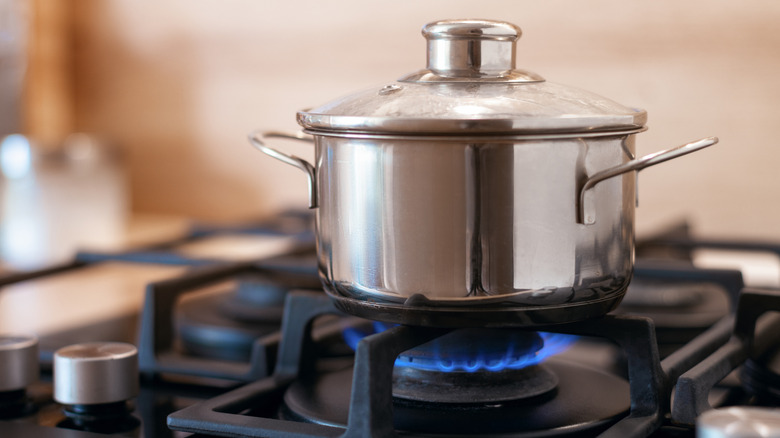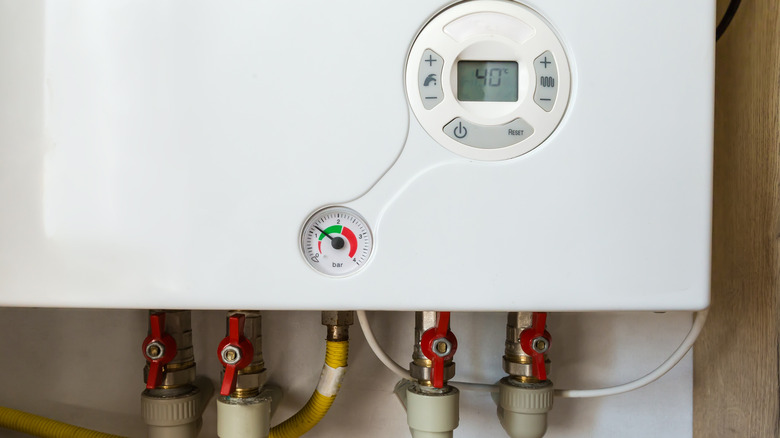Is It Safe To Still Use Gas Appliances During A Power Outage?
Generally speaking, natural gas is cheaper to cook with than electricity and is a less expensive way to heat your home, so while some people wonder whether it's time to ditch gas-powered appliances, it is still preferred by many. Some also think that gas has another big advantage, in that you can still use it during a blackout. Is that true, though? Is it safe to use gas appliances during a power outage? The answer may not be as straightforward as it seems. Much depends on the individual appliance and how its ignition works; you should be able to safely use some, like gas stoves, but most ovens, water heaters, and furnaces would not work at all — safely or otherwise — during the outage.
For example, modern gas stoves often have electronic ignition, but it's usually perfectly safe to light the burners with a match. However, if it's dark, be sure to use a flashlight, not a candle, to see the controls first. Problems could arise if the stove was left unattended and the flame went out, causing explosive gas to build up (although most of today's gas stoves have a flame failure device that would prevent this and keep the appliance safe).
Gas ovens, on the other hand, cannot be lit manually while the power is out. The valve and the ignition are operated by electricity, so there would be no gas for you to light. In fact, if the power outage happens while the oven is operating, it would shut down immediately and you'd need to restart it once the power is back. Even if it could work without electricity, you wouldn't want to use an oven to heat your home if your electric heater isn't working due to an outage.
How a power outage affects gas water heaters and furnaces
Most gas water heaters rely on electronic ignition and pumps to circulate water, so there's no way for them to work in a power outage. That said, some older models with manual ignition and an alternative means of circulation can be used safely. Gas furnaces will not work at all, again, because they have electronic ignition and blowers to push the heated air through the ducts. The same goes for gas dryers. With gas fireplaces, it will depend on the age. Older models might have a pilot light that stays on at all times, while modern ones are likely to rely on electronics.
The golden rule is, if in doubt, don't try it. If manual ignition isn't an obvious feature, or isn't explicitly outlined in the user manual, never tinker with gas devices in an attempt to light them. Modern natural gas appliances usually have a host of safety features, but the gas itself is highly explosive.
There's also the potential issue of carbon monoxide poisoning. You can't see or smell it, but this combustion byproduct can be lethal. All gas appliances give off some carbon monoxide, but as long as they are functioning properly, it isn't enough to cause an issue. To ensure your safety, experts recommend having gas appliances checked and serviced annually. You'll also want to check that you have enough carbon monoxide detectors around your home. It can be safe to use gas appliances during a power outage, but you ought to make sure you understand which of your devices will work normally and which will not.

